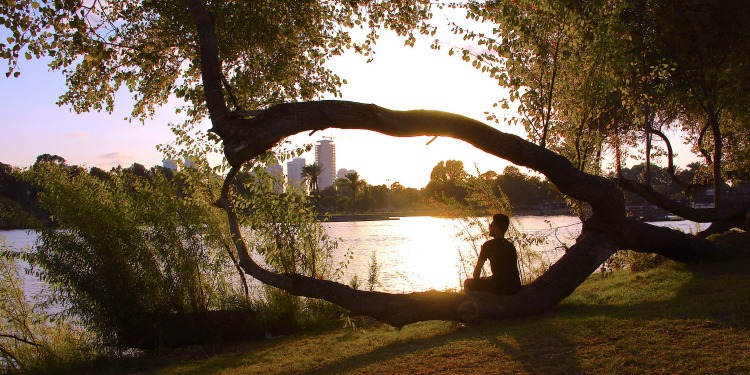A Sacrifice Impossible to Overlook
The Fellowship | May 8, 2019

Israelis are a proud, enduring people, full of life and determination. If you go to Israel, you’ll experience this nearly everywhere you go: walking down the street, shopping at the market, riding the bus.
But lurking just below the pride is something quieter and more subdued that is no less a part of Israeli identity — it’s an awareness of the personal investment, loss, and sacrifice that every Israeli has made in one way or another for their country.
You can see this in the far-off look in a mother’s eyes when another soldier’s funeral is announced. You see it in the hugs a father gives his Army green-clad child at the bus station. Or, in my case, you can see it in a simple neighborhood oak tree.
Today is Yom Hazikaron, an annual holiday on which we honor our fallen soldiers. It’s a day when we’re forced to confront the sense of sacrifice that can sometimes be hidden by our determined, forward-thinking sensibilities.
Today, for example, I’m staring at the same oak tree I look at every day. It sits right outside of my house, a towering oak with branches that cast shade on a small bench beneath it. My children play there. People on a stroll often stop to rest and admire it. But today, the small inscription on the bench — “Amos—1962-1982” — is impossible to overlook.
For my neighbor Yudit, the inscription is large, glaring, and impossible to overlook every day. The memorial is for her son youngest son, Amos — her “baby,” she calls him. Amos was killed in action in the first Lebanon War of 1982. He was twenty years old.
Yudit has lived in the same house for more than 50 years, and since we’ve moved next door she’s been practically a grandmother to our children. They show up unannounced and march straight to her candy drawer, which she keeps stocked specifically for such visits. She welcomes them with a bright smile, as she does all of us.
At one point, the tree may have been just another tree to her, too. But since that day in 1982 when she lost her youngest son, and a plaque was placed on the tree to honor his memory, it serves as a painful reminder of the loss she experienced and continues to live with every day.
Every year on Yom HaZikaron, our street fills with cars and visitors paying their respects to the grieving mother. Amos’ childhood friends, community members, and the soldiers he served with all stop by.
And I know that similar scenes are happening all over Israel on Yom HaZikaron. Ours is a small country, and nearly everyone has been affected, in one way or another, by the sacrifices we have made to live in freedom. It’s that camaraderie that makes Yom Hazikaron such a painful but important holiday — it forces all of us to stop, visit, pay our respects, and acknowledge the losses that have allowed us to gain so much.
That’s why today, in this otherwise loud, proud, boisterous country, something as simple as an oak tree can stop you in your tracks, and make you reflect on those who gave their lives so we can live ours.
– Ami Farkas
